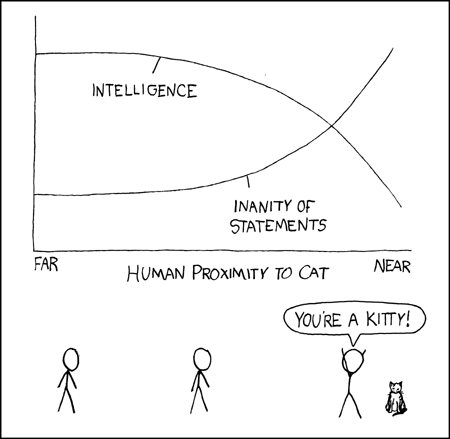Last week I embarked on a little experiment I've been meaning to try for a few years. I was first introduced to the idea of polyphasic sleep sometime during college - I forget the context, but suffice it to say I probably came across it during an exam period. The idea is fairly simple: break your sleep schedule into smaller more frequent chunks, and you will gain more time overall as a result of having to sleep less.
For the exceptionally hardcore, there is the polyphasic method championed by such night-owls as Buckminster Fuller. This involves various and sundry sleeping patterns of say 20 minutes every 4 hours or 30 minutes of sleep every 6 hours, etc. Various polyphasic approaches are detailed
on this wiki.I've always had trouble falling asleep and waking up - and I've certainly never been able to pull off a successful nap. Without fail I'm either twice as groggy afterward as when I went to sleep, or I sleep way too long for it to qualify as a nap. Polyphasic sleep per se was kind of out of the question for me.
Instead, I went with a triphasic model - which is just a fancy way of saying I sleep three times a day - and broke my sleep periods into chunks that mirrored a full and natural REM cycle of 90 minutes.
I started my first waking day last Sunday at 10am after waking from a full eight hours of sleep. My first sleep period actually began on Monday, in order to deprive myself enough that I'd be able to fall asleep right away. That was important since I needed to be able to set my alarm to go off roughly 90 minutes after I actually fell asleep in order to wake again at the end of a natural sleep cycle. So the sooner I was able to fall asleep after setting it, the better.
I won't detail every day journal-style, as I've seen others do, but here's a run-down of my daily schedule and a rough overview of my experience.
Each day I slept three times. Once in the early morning from 5:30am until 7:00am. Again in the afternoon from 1:30pm until 3:00pm. And finally in the evening from 8:30pm until 10:00pm. This seemed like a good and even distribution. I was only out for 90 minutes of the work day, and I wouldn't need to miss any evening events like shows etc. I should mention in case you don't know me, I freelance for a living, and I'm lucky enough my schedule can be flexible enough to accommodate a little modification like this. I did quickly find out however, that while the extra awake hours gave my productivity a serious boost - I missed a sleep cycle at least once because my hours aren't always as flexible as all that.
The first few days were both tougher and easier than I expected them to be. On the one hand, I've never been so regular in my sleep patterns before in my life. As long as I can remember I've taken at least an hour and sometimes two to fall asleep at night, and I tend to be a snooze-button guy, where the wake-up process can last just as long. Since high school I've learned to set my alarm at least an hour and a half earlier than I actually want to get up if it's very important that I get up on time. Sleeping in 90 minute periods seems to be an amazing solution for this. Waking up at the end of a full REM cycle was way easier than I'm used to, and I found that I was consistently tired enough in the half hour or so before my cycles to be able to fall asleep right away. I also began meditating again in the minutes leading up to my cycles, which I think helped me fall asleep easier.
What was tough was I thought at first a simple matter of adjusting to the new pattern and amount of sleep I was getting. I'm not used to getting 4.5 hours a night, so I figured it would take some adjusting. I was a little groggy between cycles during the first two days - but that actually went away surprisingly quickly. The toughest thing for me was losing the psychological sense of a day beginning and ending.
I ended my week of experimentation with a full 8 hours of sleep during the night, and the thing that surprised me the most the following day was that I recalled the events of the entire previous week the same way I would recall the events of one day. Everything ran together like one massive undulating day. I'm sure I wouldn't be able to keep that up any longer than I did.
I really enjoyed the extra time this schedule gave me though, and so I'm trying a new variation this coming week. I'll be sleeping for three hours (a multiple of 90 minutes) each evening - from 4:00am to 7:00am, with a 90 minute nap at some point throughout the day depending on when my schedule allows. I think this will make my sleep schedule not conflict with my work/life schedule as much (that came up twice last week) and I'm hoping to solve the strange never-ending day phenomenon by going to sleep when it is dark and waking up when it is light for my longest cycle. Last night was my first 4-7 period, and so far so good. I don't feel any more tired than I did last week so far - and definitely no more tired than I would on 8 or more hours of sleep.
More next week!


